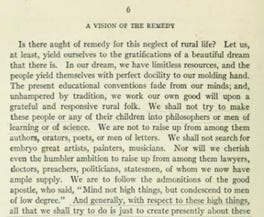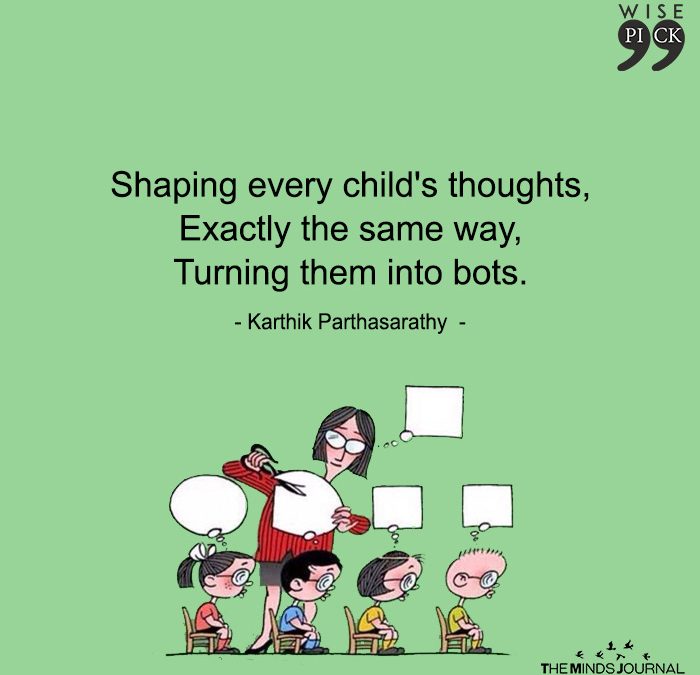Origins of Modern Education
Excerpts from my book “An Unorthodox Truth”
The education system we have today, known as compulsory education, originated from the Prussian government in the 1700s. This system was developed after Prussia’s defeat to France in the Napoleonic wars, when Prussian soldiers refused to participate in war. To prevent this from happening again, Prussia expanded its schooling system and made it mandatory for all young citizens, regardless of gender, to receive education from the age of 5 to 13 or 14, primarily through municipality-funded schools. The main objective was to ensure unwavering loyalty to the country.
The Prussian education system served as a model for the American schooling system. It is important to note that the foundation of the Prussian system was to instill complete obedience in the population. This aspect must be considered when discussing compulsory education, which refers to a period of education required for everyone and enforced by the government. While it originated in Prussia, we will now explore how prominent figures like Rockefeller and Carnegie influenced the American education system.
During the 19th century, Americans valued education and intellectual pursuits. The majority of the population were literate, with a literacy rate ranging from 93% to 100%, as revealed by the 1840 census. Education before the introduction of compulsory schooling laws in Massachusetts in 1852 was private and decentralized. Consequently, classical education, including the study of Greek and Latin, as well as a strong foundation in history and science, was widespread.
However, the monopolistic elites saw a society of independent thinkers as a threat. They needed a compliant workforce, individuals whose intellect was developed just enough to carry out menial tasks in factories. John D. Rockefeller played a significant role in shaping education by establishing the University of Chicago in 1889. His philanthropic adviser, Frederick Taylor Gates, penned “The Country School of Tomorrow,” which outlined the Rockefeller plan for education. The goal was not to produce philosophers, scholars, artists, or professionals but to mold obedient individuals.
Rockefeller’s vast resources, further supplemented by the establishment of the General Education Board in 1902 with a $180 million endowment, allowed for the immediate influence of the Rockefeller agenda on education. This influence was magnified by other monopolists of the time who shared the same philanthropic approach. Andrew Carnegie, known for his success in the steel industry, started his fortune by transporting Rockefeller’s Standard Oil via railroads. In 1905, he founded the Carnegie Foundation for the Advancement of Teaching, which served as a tax-free organization to direct the development of the education system in the United States and globally. Following suit, Rockefeller established the Rockefeller Foundation in 1910 as the umbrella organization for his philanthropic endeavors.
The impact of Rockefeller and Carnegie on education was profound, shaping the educational landscape not only in America but worldwide.
Proverbs 22:6 advises us to guide children along the right path, as it will have a lasting impact on their lives. This principle was embraced by influential figures like the Prussians, as well as prominent Americans such as Rockefeller and Carnegie. These individuals actively worked towards shaping the education of millions of children nationwide. Unfortunately, we were unable to deviate from this predetermined path, with these efforts disguised as acts of philanthropy.
Remember the Reece committee’s discovery? Billionaires were utilizing their wealth to mold society according to their own preferences. They began with education, and in this article, we will delve into their vision. We will rely on insights from John Taylor Gatto, a highly respected teacher who was named New York Teacher of the Year four times. Gatto’s book “Weapons of Mass Instruction” gives us a glimpse into a meeting among these billionaires as they discuss their goals for education.
If the original Prussian compulsory education system sought to instill absolute obedience in the population, the billionaires desired the same outcome. According to Gatto’s book, between 1896 and 1920, a select group of industrialists and financiers, along with their charitable foundations, invested more money in compulsory schooling than the government did. Carnegie and Rockefeller alone were spending more than the government as late as 1915. This thorough schooling system was established without public participation or knowledge. While motives may have been complex, it is enlightening to explore the General Education Board’s view of the mission. In a 1906 document, they stated:
“‘In our dreams … people yield themselves with perfect docility to our molding hands. The present educational conventions [of intellectual and moral education] fade from our minds, and unhampered by tradition we work our own good will upon a grateful and responsive folk. We shall not try to make these people or any of their children into philosophers or men of learning or men of science. We have not to raise up from among them authors, educators, poets, or men of letters. We shall not search for embryo great artists, painters, musicians, nor lawyers, doctors, preachers, politicians, statesmen — of whom we· have an ample supply. The task we set before ourselves is very simple … we will organize children … and teach them to do in a perfect way the things their fathers and mothers are doing in an imperfect way.’”
To summarize, the General Education Board’s intention was not to nurture intelligence or talent, but solely to foster obedience. This mission statement, found in multiple forms, must be read and understood multiple times to dispel any illusions regarding the purpose of education.
Initially, I found it hard to believe that the General Education Board, which closed its doors in 1964, had such a purpose. However, upon seeing the actual document, my doubts vanished. (See Figure 1)

This passage emphasizes the true objective of public education: to shape our minds according to their desires. It was not aimed at empowering us to become independent individuals who can thrive on their own. Instead, its purpose was to ensure our seamless integration into their society. As Gatto pointed out, this mission statement needs to be read repeatedly in order to shatter the illusions created by the education system. Symbolically, we will break the metaphorical “mental glasses” that school has placed upon us.
In his insightful words, author Seth Godin sheds light on the hidden agenda behind public education and how it shapes our society. Contrary to conspiracy theories, Godin explains that public education was a deliberate collaboration between government and corporations. From Godin, we read the following:
“I need to start by acknowledging that I am NOT a conspiracy theorist, I think most conspiracy theories are groundless …in this case public education was a conspiracy between government and corporations. Corporations were petrified that two things would happen when factories started getting efficient: one, that they would run out of factory workers because that would mean that have to pay people a lot and two, that they would run out of people who wanted to buy stuff. The typical person in 1880 had two pairs of pants and a pair of shoes and that was it. The idea of consumer culture was not preordained and it certainly didn’t exist for the typical person prior to 1900. So public school was built intentionally by Andrew Carnegie and Woodrow Wilson and other people to do two things: [1] train people to become compliant factory workers, sit in straight rows, do what they’re told, follow instructions and [2] to teach kids that the best way to fit in and feel good was to buy stuff and it’s done a great job at both those things and we’re still doing it.”
Remarkably, public school has succeeded in achieving both goals, perpetuating a system that molds us into conforming automatons. Moreover, education also promotes a devotion to the state, further enforcing the control of the ruling billionaires. But the narrative doesn’t end here. We will delve deeper into how education erodes our individuality, a necessary sacrifice in the society that the super-rich have constructed for us.
Thank you and best of luck in your journey.
Picture by The Mind’s Journal
















